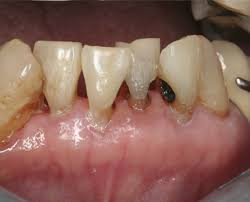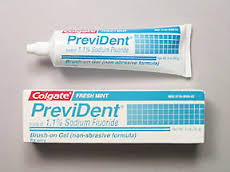Dental Care for Seniors
About the Geriatric population:
-
Medications reduce salivary flow which causes inflammation of the mucosa, cavities and fungal infection in the mouth
-
Physical/cognitive impairments affect oral hygiene which causes candidiasis (fungal infection , halitosis (bad breath), periodontal disease and cavities
-
Impaired mobility affects access to oral health care
All of this results in a negative effect on the cardiovascular system, and diabetes, and creates a higher risk of aspiration pneumonia.
The complexity of dental treatment is greater with our older population due to:
-
the effects of chronic disease,
-
The medications prescribed and their adverse effects. (i.e. impact of systemic disease on oral health)
Oral disease is cumulative and the elderly have more complex systemic diseases which can create a negative effect on the quality of life.
Ten, fifteen, twenty years from now, when you need your nourishment the most, and your need to socialize is the most, we don’t want you to have a compromised dental state of not being able to eat and laugh as you wish. We offer Dental care for Seniors, Feel free to contact us and Make your oral health your priority at every decade of your life!
Stats
-
Females over age 65 – 94% take at least 1 medication (men 91%)
-
57% take 5 or more meds (men 44%)
-
The side effects of many medications is dry mouth which increases the risk of cavities significantly.
The Dental Geriatric Assessment
Represents a shift in focus from a disease specific evaluation to a function-oriented evaluation. Small changes in function can make a big difference in the quality of life for patients and caregivers.
Denture Wearers
Dentures don’t change much over time but your tissues do. Candida (fungus) thrives under complete dentures. It’s very important to come in annually to have your dentures and tissues checked. A simple lab processed reline of your denture can keep your denture fitting comfortably and prevent trauma to your tissues from an ill-fitting denture. Fungal infections may require a prescription of an anti-fungal agent to treat.
Root Caries
Root caries is the primary cause of tooth loss in older adults and tooth loss is the most significant negative impact on oral health-related quality of life in our elderly patient population.
Regular dental exams are crucial to detect and treat root caries.
It is important to take more frequent x-rays to check for cavities between teeth especially if you experience dry mouth as a result of being on multiple medications.
The restorative material that we use to treat root surface caries contains fluoride which helps to prevent recurrent cavities around these new fillings.

Fluoride
Use it everywhere! – Toothpaste (5000 ppm), professionally applied fluoride varnish, and fluoride rinses are great preventive tools to prevent cavities and remineralize early carious lesions.
Patients newly admitted to any long term care facility should receive an intra-oral assessment by either a dental professional or other health care professional.

Prosthetic Joint Replacement
Here are the current guidelines set forth by the American Dental Association:
“For patients with prosthetic joint implants, prophylactic antibiotics are NOT recommended prior to dental procedures to prevent prosthetic joint infection.
For patients who are medically compromised or have a history of complications associated with their joint replacement surgery, and who are undergoing dental procedures that include gingival manipulation or mucosal incision, prophylactic antibiotics should only be considered after consultation with the patient and orthopedic surgeon.”
Dementia
Sundowning effect – time of day. Patients with dementia are more aware and cooperative in the mornings. Bad symptoms come out when sun sets. It is ideal to book your dental appointments in the mornings.
-
We appreciate having a family member present if patient has dementia and will do our best to send written instructions home with our patient.
-
Irreversible cognitive impairment = highest risk of oral disease
-
forget to brush their teeth
-
decreased salivary flow
-
decreased denture use
-
difficulty/reluctance to report pain
-
Frequent dental check ups and cleanings will go a long way to prevent dental complications and costly dental restorations.
Changes in behaviour indicative of oral pain:
-
Refusal to eat – often hot/cold items
-
Pulling at face or mouth
-
Leaving dentures out of the mouth
-
Increased restlessness, moaning, shouting
-
Disturbed sleep
-
Refusal to participate in activities
-
Aggressive behaviour/self-injuries
Our goal is to maintain as many teeth as possible while avoiding complex restorations
It is best to treat dental problems early in the diagnosis as waiting will only make the treatment more difficult and longer and more costly. To be effective in maintaining good oral health for our seniors, it is important to have frequent recall visits (at least every 6 months, perhaps even more frequently depending on the difficulty the patient is having in maintaining their personal oral health care). Fluoride treatments – we highly recommend this as a very effective tool for preventing dental caries.
Stages of Alzheimer's Disease
Forgetfulness
Confused
Disorientation
Dependency
Accessing Capacity to Consent
-
An individual must be able to make and express a choice
-
An individual must display a factual understanding of his/her situation
-
An individual must not only know the facts but appreciate their significance
-
An individual must come to a decision in some ‘sensible’ or ‘rational’ way
-
Thank you for allowing us to play a role in improving the quality of life of our valued seniors!
